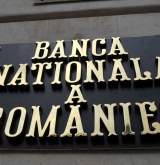Be confident in your capacity to change
“Although it is a difficult time, it’s in his power to change, adapt and react depending on how the crisis plays out. It is a crisis, no doubt, but as long as he is confident in his abilities, any entrepreneur should see it not only as a challenge, but as an opportunity”, Kapetanopoulos said.
Don�t cut back your marketing spend this year
“If I were to give a piece of advice, I would say: Under no circumstances should you cut back on marketing this year, because it will be tougher than in 2009, it is the last year of crisis, and only a smart marketing strategy will define who wins and who loses in this year’s challenging environment”, said Alexandru Popescu, marketing director Centrul Medical Unirea.
But more efficiently would be to increase marketing spend, if they have projects they want to advertise, because they would increase awareness on their company or products while others will just stick to their knitting.
Alexandru Popescu added:
Get creative – the timing for doing things you dreamed of couldn’t be better.
Use the non-conventional media
Look at the resources you have at-hand (existent or former customers).
Stay informed and be flexible
“During times of economic downturn, it is vital to have a good market insight in order to scan the environment for strategic opportunities that could minimize risks and help us work our way out of crisis. We also have to be flexible and adapt to a changing environment, to find the courage to redefine our business lines according to the new opportunities that arise and the new market demands”, she added.
Take an optimistic view, she continued, “If we think positively and look on the bright side of the crisis, we will emerge from the crisis even stronger than before”.
Get smarter, not louder
“Take more time and energy developing a smarter approach, rather than spending more”, said McKenzie.
Get close to your customers
“In marketing, you have to be focused on helping and serving your customers every day, to improve their experience. For us, marketing leaders, it is always important to find new ways of getting closer to our customers”, Kind added.
Find a balance between survival and conservation
Survival-oriented companies minimize their marketing expenses, shift their focus from branding campaigns to a solution that boosts acquisitions and hopes to work its way out of the crisis with zero marketing spend. On the other hand, conservation-oriented companies want to preserve the value of the brand in the consumer’s mind, in order to avoid a ROI loss or lose its competitive edge when the crisis ends.
























































![HR [PLAY] Tech Workout - 11...](https://www.wall-street.ro/image_thumbs/thumbs/973/973fe0a3888d417feff63de42e814180-260x260-00-65.jpg?v=1714086410)










